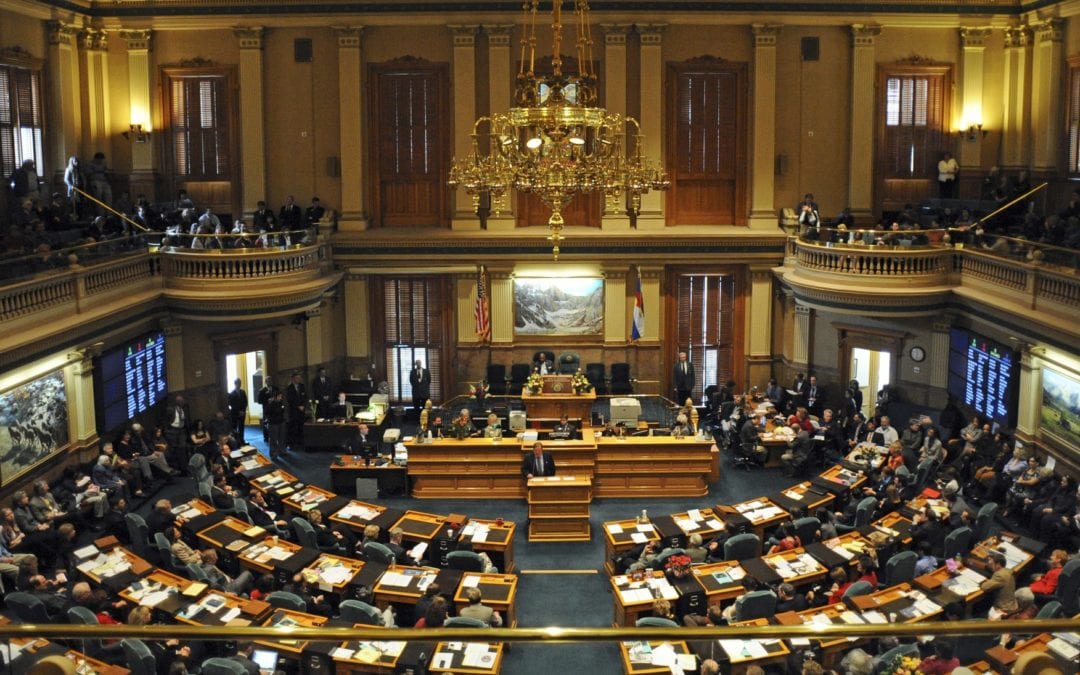Hello everyone,
It was a short week with both the House and the Senate closing for the snowstorm on Thursday. However, it was again a good week for CSPA legislative priorities.
On Tuesday, the Senate passed HB 1139 Death Benefit for State Employee Surviving Spouse on second reading. Thank you consent calendar! On Wednesday, the Senate passed HB 1139 on third reading and sent it back to the House to consider the Senate amendment to include POST-certified employees in the Department of Revenue and at institutions of higher education. On Friday, after a joint session of the House and Senate to hear from the Chairmen of the Ute Mountain Ute Tribal Council and the Southern Ute Indian Tribe Tribal Council, the House concurred with the Senate amendment and repassed the bill. The bill will now be sent to the Governor for his consideration. Governor Polis is expected to sign HB 1139.
Unfortunately, it wasn’t all good news last week. On Monday, HB 1372 Regulating Law Enforcement Use of Prone Restraint was introduced. HB 1372 prohibits peace officers from using prone restraint (defined as “a restraint in which the person who is being restrained is secured or held down in a prone position”) to subdue a subject, except in cases in which the use of deadly force is justified. Colorado’s law enforcement community has significant concerns about HB 1372. It is currently scheduled to be heard in the House Judiciary Committee in a couple of weeks.
On Friday, the JBC heard presentations on the most-recent revenue forecasts from Legislative Council and OSPB. Although Legislative Council and OSPB present revenue forecasts to the JBC every four months, the March revenue forecasts are the most anticipated because they are used to determine how much revenue is available for the upcoming state budget.
The news was not good. Cash fund revenues were higher than anticipated, but that sounds like a good thing, right? No. Back in the early 1990’s when the Taxpayer’s Bill of Rights (TABOR) passed, the legislature decided to use the state’s general fund for all TABOR refunds. Therefore, when cash fund revenues increase, the TABOR refunds related to those increases come out of the general fund leaving less general fund available for the state budget. To add to the pressure, the state’s population grew less than anticipated. (The TABOR revenue cap is based on inflation, plus population growth, so lower population growth means a lower TABOR cap and more TABOR refunds.) The Legislative Council forecast indicates the JBC needs to cut about $224 million from what it has approved for next year. The OSPB forecast indicates the JBC needs to cut about $165 million. While these numbers seem insurmountable, it is not unheard of for the JBC to have to revisit decisions it has already made to balance the budget. The JBC is expected to finalize the FY 2024-25 Long Bill next week. However, I would not be surprised if they push back the March 25th deadline for introduction of the Long Bill.
So far, there have been 556 bills introduced – 375 in the House and 181 in the Senate. Only 51 days until the General Assembly is required to adjourn sine die.
Bill Skewes
Lobbyist



